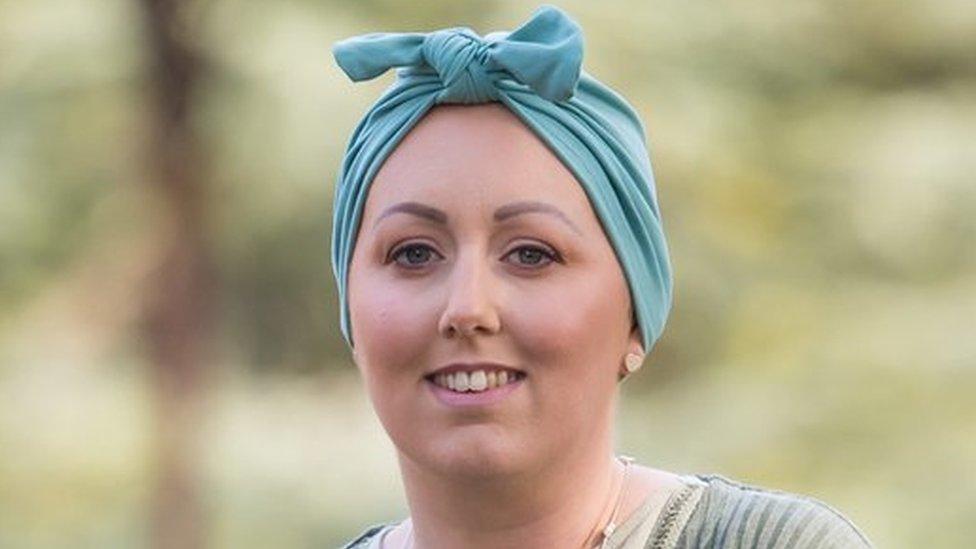Rapid cancer diagnosis centre rollout in Wales a UK first
- Published
"Cancer treatment delays cause immense anxiety," says John White
Wales has become the first part of the UK to roll-out centres that can help diagnose people with cancer in days.
National cancer clinical director Prof Tom Crosby said rapid diagnostic centres (RDCs) were a "huge step" in addressing Wales' long waiting times.
But he warned cancer services faced their biggest challenge while a charity warned of a "perilous" situation.
Patients and cancer charities welcomed the centres, but insisted more needed to be done.
RDCs have cut diagnosis times for patients who have unspecified but potentially serious cancer symptoms.
Wales has some of the worst cancer survival rates in the developed world, and pressure on services has intensified since the pandemic.

You may also be interested in:

Evidence shows more cancers are being diagnosed at a late stage.
This is because some patients go to the doctor too late and because services cannot cope with demand.
Prof Crosby said staff shortages meant demand could not be met.
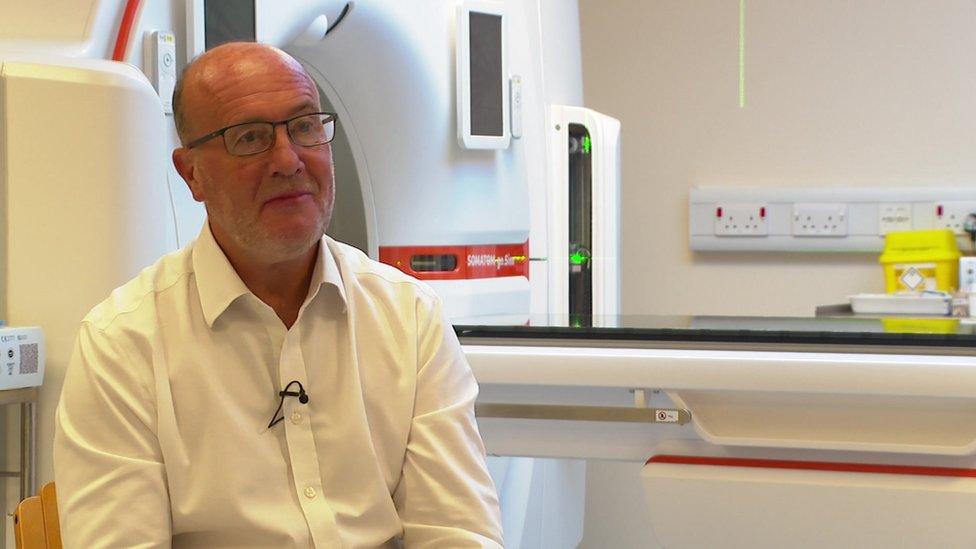
"Patients are being diagnosed and treated later than we would like," says Prof Tom Crosby
"We're facing the most challenging times we have ever experienced in cancer services which were already fragile," he said.
"Demand is outstripping capacity and that means patients are being diagnosed and treated later than we would like.
"We are going to see a deterioration in cancer outcomes as measured in survival, quality of life and patient experience.
"And we're seeing worse performance figures now than we've ever seen before."

'These facilities should be available to all'
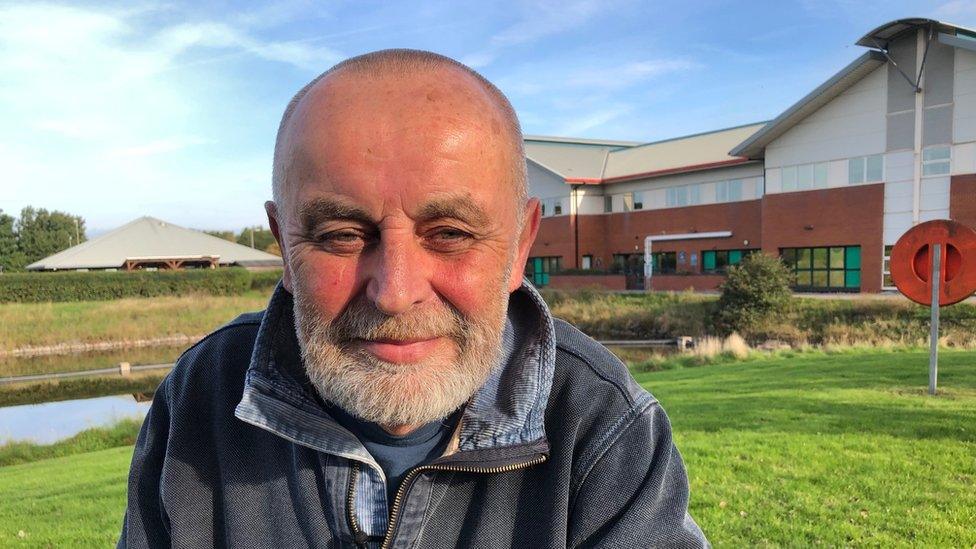
John White delayed visiting the doctor because of the pandemic
John White became worried when he noticed lumps under his shoulder. Because of the pandemic he put off getting his symptoms checked out.
"I let things slide for a couple of months," he said. "And I finally thought, 'I really must go to see my GP'.
"After a physical examination I was referred to a rapid diagnosis clinic in Neath Port Talbot hospital.
"I really wasn't confident things would move quickly. Given the pandemic, waiting lists and all these things on the news.
"To my amazement, within a few days I had an appointment, was given a CAT scan, a physical examination, blood tests and things like that and received an initial diagnosis that very morning."
He had a form of blood cancer and was sent to a specialist team. He then began chemotherapy and immunotherapy treatment.
"What I have isn't curable but it is manageable," Mr White, from Swansea, said. "Hopefully that course of treatment may give me as much as three to four years untroubled.
"I really believe these types of facilities should be open to everybody."

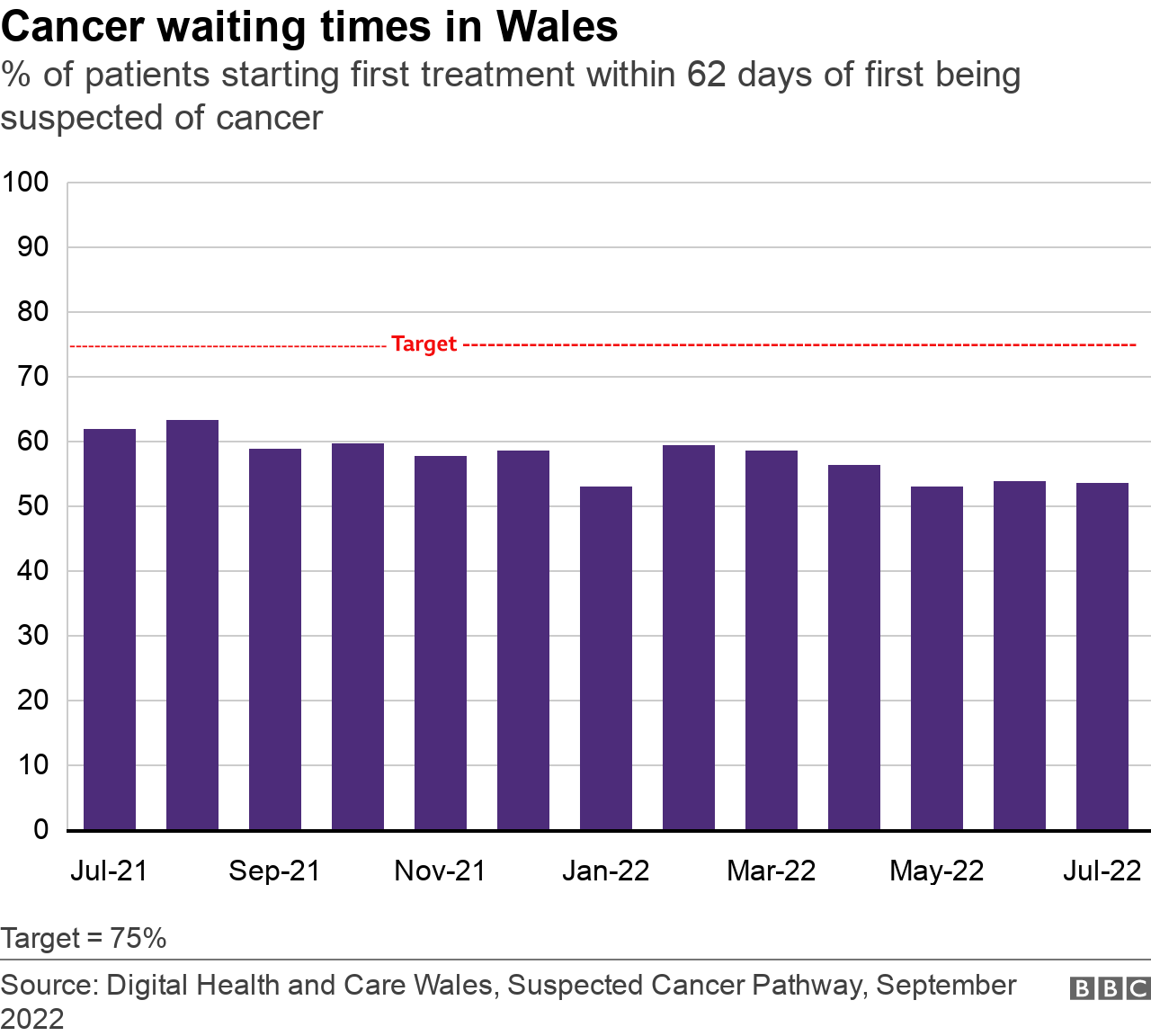
The latest official numbers show in 853 of 1,594 (53.5%) of cases, patients in Wales started treatment within 62 days of first being suspected of having cancer.
It is the second lowest figure recorded since new measures were introduced in 2021. The target is 75%.
Cancer charities warned services are under huge strain.
Richard Pugh, of Macmillan Cancer Support in Wales, called it a crisis. During the pandemic, he said, people "sat on their symptoms".
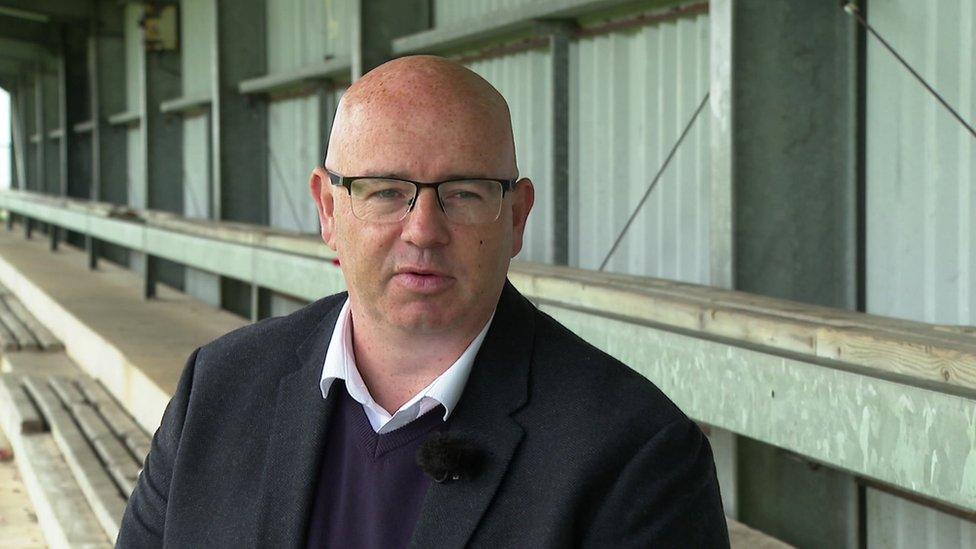
Macmillan's Richard Pugh says cancer services are in crisis
He said: "Now they are flooding back into the system resulting in huge pressures.
"Around half of patients are missing the waiting time target for treatment and the psychological impact on that individual and family is huge.
"Perilous, crisis: these are not buzz words. This is the truth of what we're seeing."
Prof Crosby believes NHS Wales must adopt new and innovative ways to work.
Tests and scans
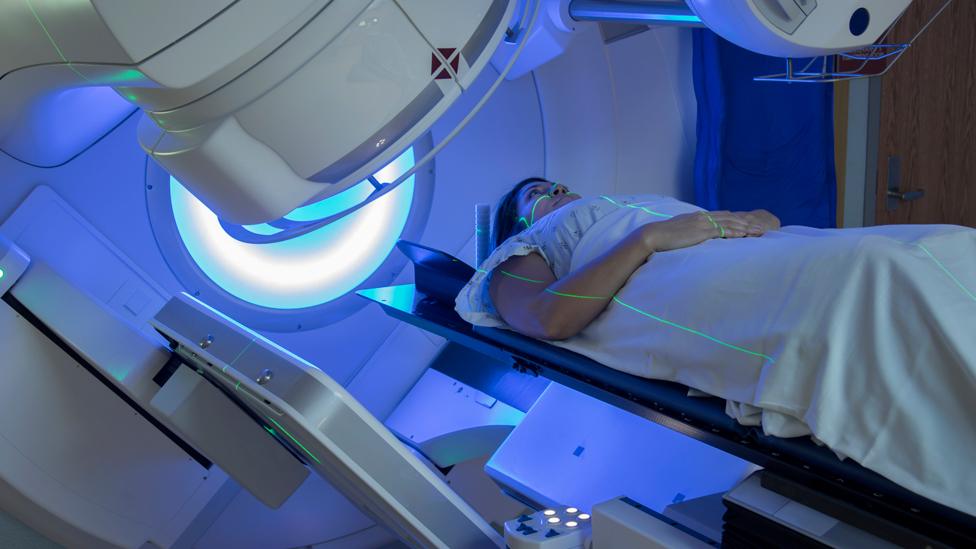
An expert said longer waiting times after Covid could lead to more people dying
He cited the introduction of RDCs, a model originally developed in Denmark.
Patients can be referred to one if a GP suspects they might have cancer but they are not showing obvious signs. The idea is they can then quickly get the tests and scans needed for a diagnosis.
Previously patients without obvious symptoms could spend months going between specialists.
RDCs were developed after NHS Wales experts visited Denmark in 2016. They wanted to know how the country had transformed cancer care after international research suggested it was performing almost as badly as the UK.
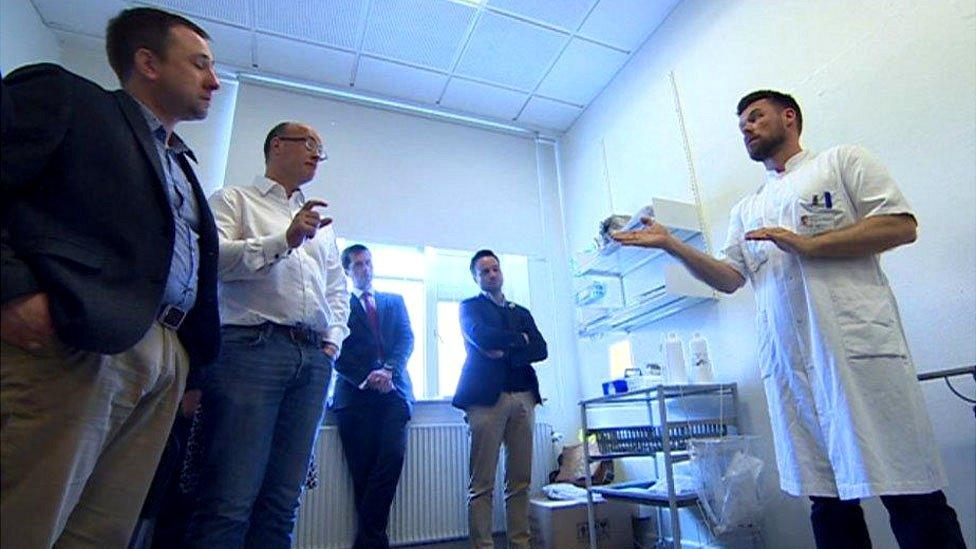
In 2016 NHS Wales experts visited Denmark to see how they improved cancer services
Establishing one-stop diagnosis centres was key to the Danish improvement.
Within a year of the visit NHS Wales began trialling RDCs in Cwm Taf Morgannwg and Swansea Bay health boards, and they led to a huge cut in waiting times.
'A genuine win, win, win'
Now RDCs have been rolled out across NHS Wales so every GP in Wales can refer patients they are worried might have cancer for rapid diagnostic tests and treatment.
Prof Crosby said: "I'm delighted to say Wales is leading the way on this, I think this is a huge development, a genuine win, win, win.
"It shows we can learn from other systems, we can bring the lessons back to Wales and we can make them work here."
But more improvements were needed, he cautioned.
"Wales really needs to build on this and develop a much more comprehensive diagnostic programme where appropriate on a regional basis irrespective of organisational boundaries.
"The workforce is the biggest challenge and that's not going to be solved overnight."
Macmillan's Mr Pugh echoed his view.
He said: "We went and saw something in Denmark and within 18 months the first one was happening in Wales.
"We had the right people involved, the support of the Welsh government, and everybody was working together collectively to deliver it.
"We need exactly the same effort now for all of the other issues."
- Published16 August 2022
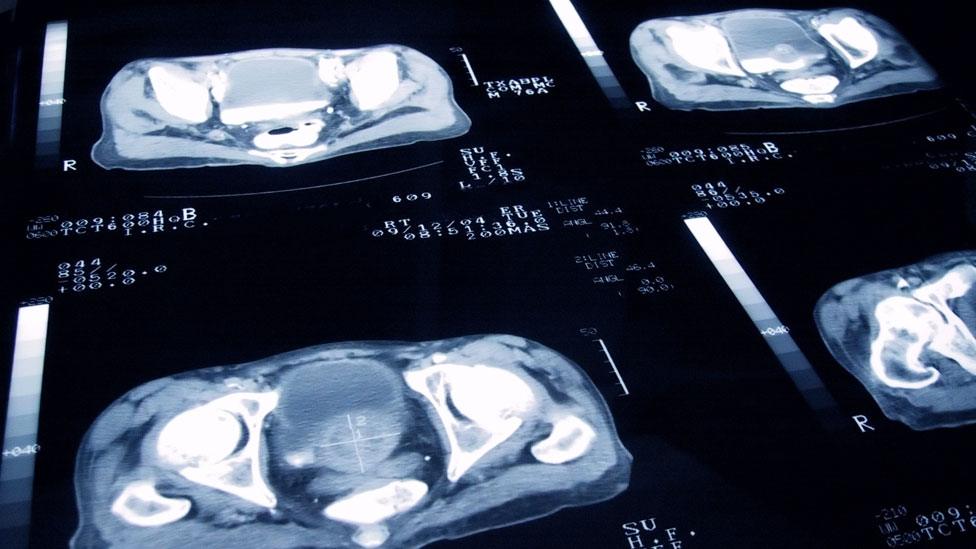
- Published21 July 2022
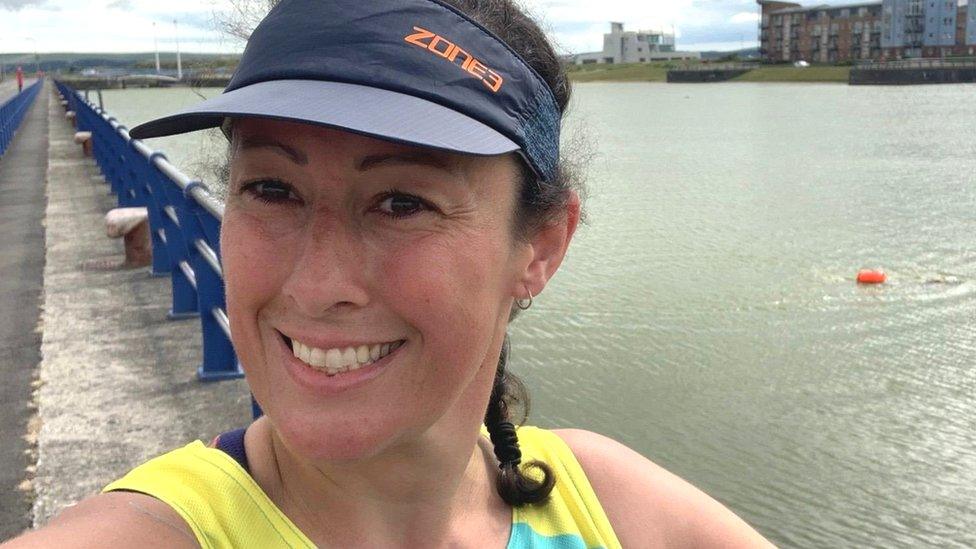
- Published7 April 2022
